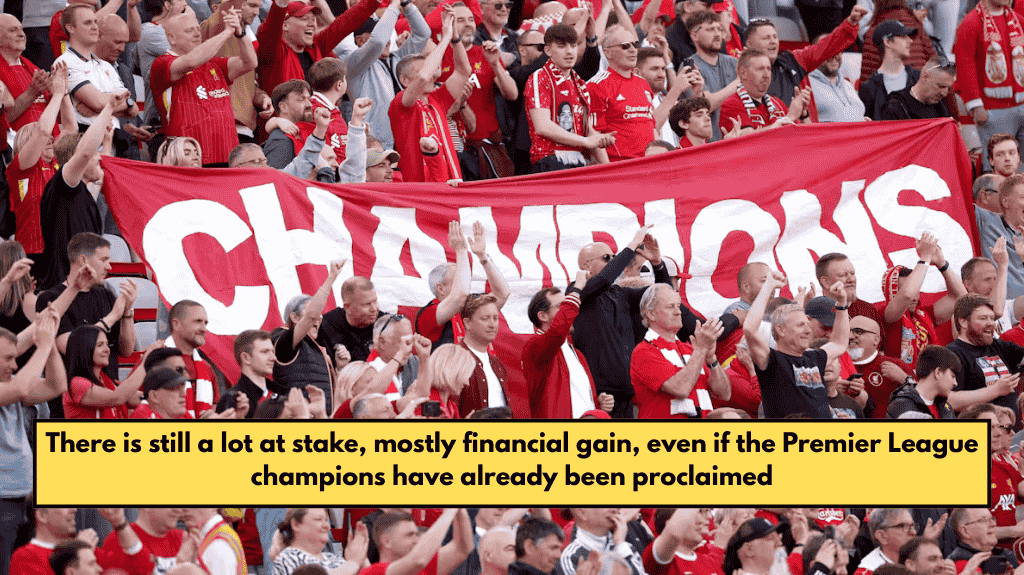The English Premier League (EPL) is a highly regarded and popular soccer competition globally.
However, there is a clear imbalance in terms of competitiveness. Every season, only a few teams compete for the championship.
The remaining teams aim to avoid relegation to the second-tier Championship or qualify for lucrative European competitions during the domestic season.
Despite the dominance of a few teams and Liverpool’s lead in this year’s title race, there is still significant fan interest among neutrals.
The reason is prestige and financial benefits for teams that qualify for European leagues.
Soccer’s uneven playing field
Since 1997, the Premier League’s competitiveness has significantly decreased due to increased foreign investment.
Super-wealthy investors including Roman Abramovich and Sheikh Mansour have permanently altered the fortunes of Chelsea and Manchester City, respectively. Since foreign acquisitions, these clubs have experienced meteoric rises and dominated the league, with Manchester City having nearly monopolized the title in recent years.
Superior financial backing provides unfair advantages in the player transfer market, wage affordability, and modernization of training facilities that domestically funded clubs cannot match.
This is most likely one of the reasons why the EPL has only had seven different winners in its 33-year history.
This is not a distinguishing feature of the English competition.
Barcelona and Real Madrid have won a total of 18 Spanish La Liga titles since 2004, while Bayern Munich has won 15 German Bundesliga championships. In Italy’s Serie A, Juventus (nine), Inter Milan (seven), and AC Milan (two) have won the vast majority of titles over the last two decades.

Economists refer to this as “industrial concentration,” where a few companies dominate the market.
When creating a sports league, it’s important to ensure that all teams have an equal chance of winning.
The National Basketball Association and other US sports have rules and governance that include this.
One could argue that such equality hasn’t existed in English football for a long time.
Despite the criticism, the Premier League continues to attract significant attention, owing primarily to the competition for European qualification.
Why it’s not all about the title
Liverpool’s fans are still celebrating their title win, which they secured with four games to spare. The club’s 20th win in top-tier English soccer equals their rival Manchester United’s record.
The league’s thrilling relegation battle has already been decided.
However, interest in the league’s final few games remains high as many clubs compete for European qualification.
These European-wide competitions are, in descending order of prestige, the Champions League, the Europa League, and the newly established Conference League.
The Union of European Football Associations (UEFA) organises these competitions, which pit the top teams from each major European soccer league against one another.
This year, the top five English clubs (rather than the usual top four) will be offered a guaranteed Champions League spot. English clubs have performed exceptionally well in the Champions League this season.
With three games remaining, the six teams still vying for a top-five finish are separated by only seven points.
The team finishing sixth in the league table and winning the FA Cup will be eligible to compete in Europe’s second-tier club league tournament, the Europa League.
The winner of the Carabao Cup will join the Conference League, the third-tier competition.
With Newcastle United (Carabao Cup winner) and Manchester City (favorite for FA Cup final) likely to finish in the top five Premier League places, the race for Europe is intensifying. Mathematical permutations indicate that up to ten Premier League places may be available for European league qualification.
This means that 12 EPL teams are still competing for every single point.
European qualification provides significant financial incentives. Many of the smaller competing clubs, including Bournemouth, Nottingham Forest, and Fulham, view this as a once-in-a-generation opportunity.
Money matters
Champions League qualification has the highest financial rewards, with a €2.467 billion prize pool (A$4.34 billion) and a minimum reward of €18.62 million (A$32.7 million) per club for participation.
Each victory in the tournament’s league stage earns an additional €2.1 million (A$3.69 million) performance bonus, and bonuses for qualifying for the knockout stage range from €1 million to €18.5 million (A$1.75 million to $32.4 million) per club, depending on how far they advance.
The reward for Europa League participation is €4.31 million (A$7.57 million) per team, while the Conference League prize is €3.17 million (A$5.57 million).
Clubs rely on this money to survive, especially as player wages and the transfer market have increased significantly in recent years.
For example, Erling Haaland of Manchester City, the highest-paid Premier League player, earns £500,000 (A$1.028 million) per week.
As a result, clubs with limited investments and earnings are finding it increasingly difficult to afford top-tier players and maintain a strong team.
Qualifying for European competition can be a lifeline for smaller clubs, which is why there’s still a lot of interest in the Premier League’s upper mid-table battles, even though Liverpool has already celebrated their title.















